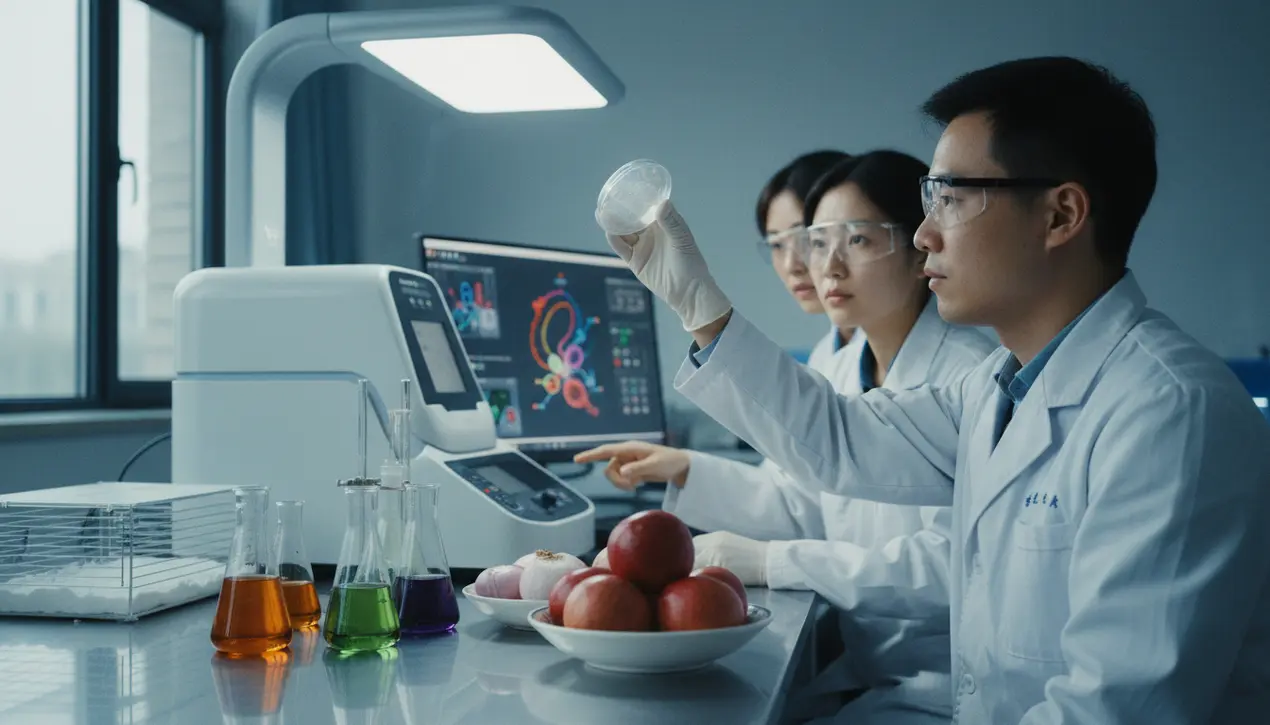
SciencemedicineCancer Research
Chinese Team Finds Gut Microbes Key to Apple's Cancer-Fighting Potential
KE
Kevin White
8 hours ago7 min read
In a fascinating development at the intersection of nutrition and biotechnology, a research team from Shandong University has unlocked a critical piece of the puzzle regarding the cancer-fighting potential of the common antioxidant quercetin. Found abundantly in foods like apples, onions, and even the pungent durian, quercetin has long been celebrated in nutritional science for its anti-inflammatory and antioxidant properties, with numerous observational studies linking it to reduced cancer risks.However, the precise biological mechanism through which it exerts its anti-tumour effects has remained frustratingly elusive—until now. The Chinese team's groundbreaking research, conducted through a series of meticulous experiments in mouse models, reveals that quercetin's efficacy is not a solo act but a sophisticated partnership with the gut microbiome.Their findings demonstrate that specific gut microbes are essential for metabolizing quercetin into smaller, more bioavailable compounds that can systemically circulate and directly inhibit the processes of tumour growth and metastasis. This transforms our understanding from a simple 'you are what you eat' paradigm to a more complex 'you are what your gut bacteria do with what you eat.' It’s a classic example of biotech synergy, where a natural compound's therapeutic potential is entirely dependent on the host's internal microbial ecosystem. This discovery has profound implications for the future of personalized medicine and oncology.It suggests that the significant variability in individual responses to dietary interventions and even certain chemopreventive drugs could be mapped directly to the unique composition of a person's gut flora. Imagine a future where oncologists, before recommending a specific nutritional regimen, first analyze a patient's microbiome through advanced sequencing to predict its efficacy.This research also opens up exciting new avenues for next-generation therapeutics, including the development of specialized probiotic supplements designed to work in concert with quercetin-rich diets to maximize their anti-cancer potential, or even engineered microbial communities that can be introduced to optimize this metabolic pathway. The work stands as a testament to the growing field of pharmacomicrobiomics, which explores how our microscopic inhabitants directly influence the drugs and compounds we ingest.It forces a reconsideration of countless past studies on plant-based polyphenols; perhaps their mixed results were not due to the compounds themselves, but to the unaccounted-for variable of the human gut. As we continue to decode the intricate dialogue between our diet, our microbes, and our genes, this research from Shandong University marks a significant leap forward, positioning the humble gut microbiome not just as a passive passenger, but as an active, powerful co-pilot in the fight against cancer.
#lead focus news
#cancer research
#quercetin
#gut microbiome
#antioxidants
#Shandong University
#tumor metastasis
#mice study
Stay Informed. Act Smarter.
Get weekly highlights, major headlines, and expert insights — then put your knowledge to work in our live prediction markets.
Related News
Comments
Loading comments...
© 2025 Outpoll Service LTD. All rights reserved.